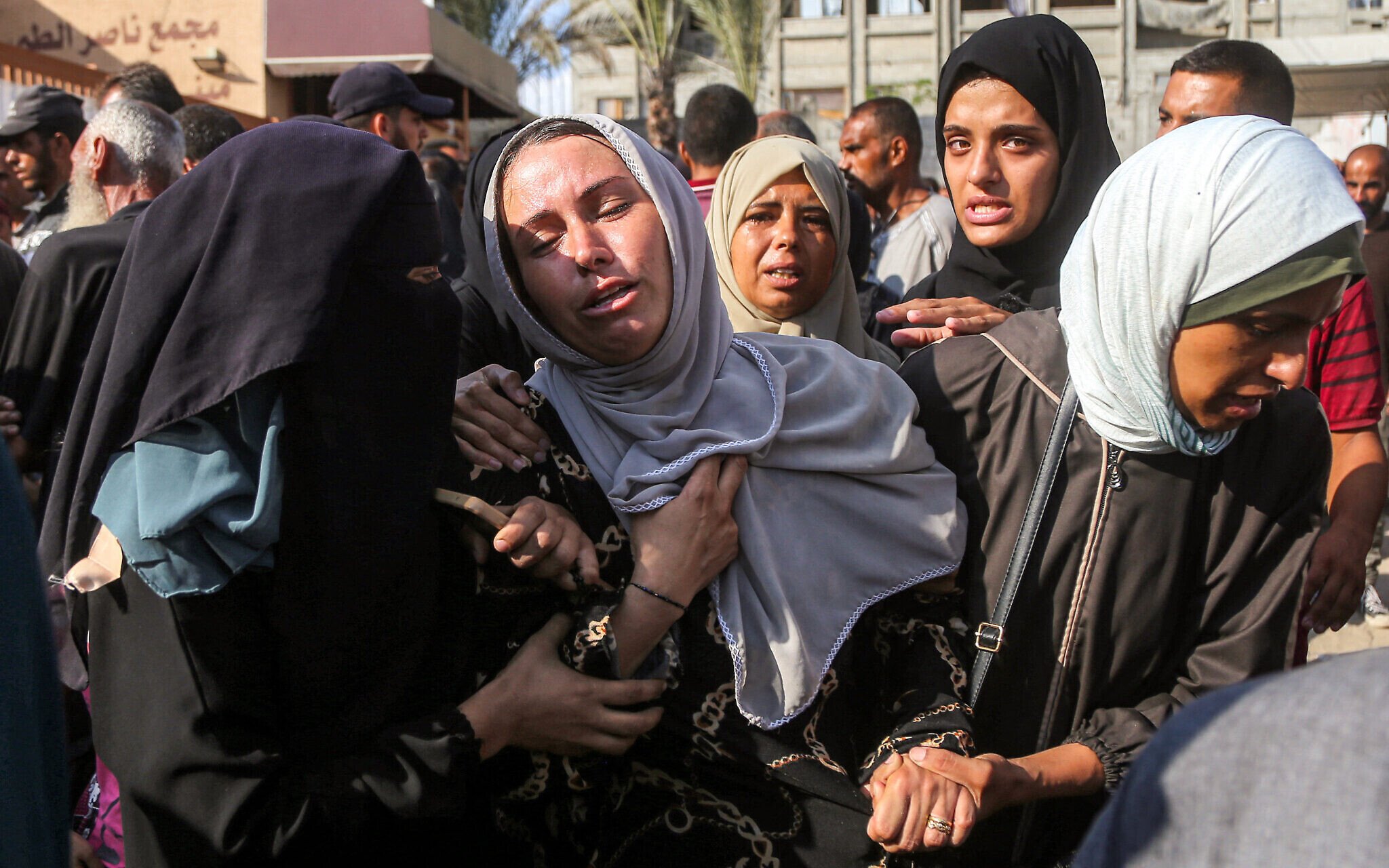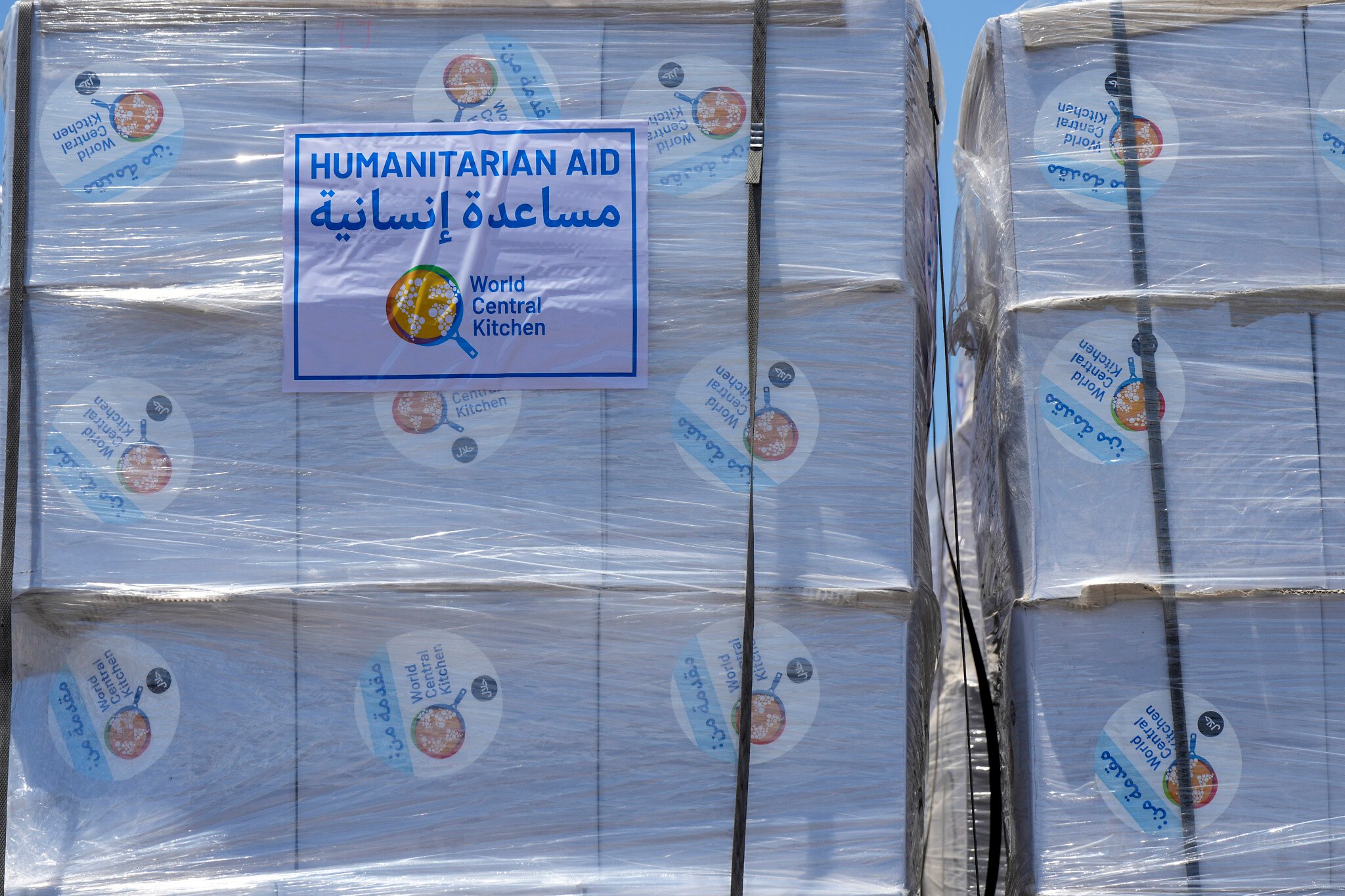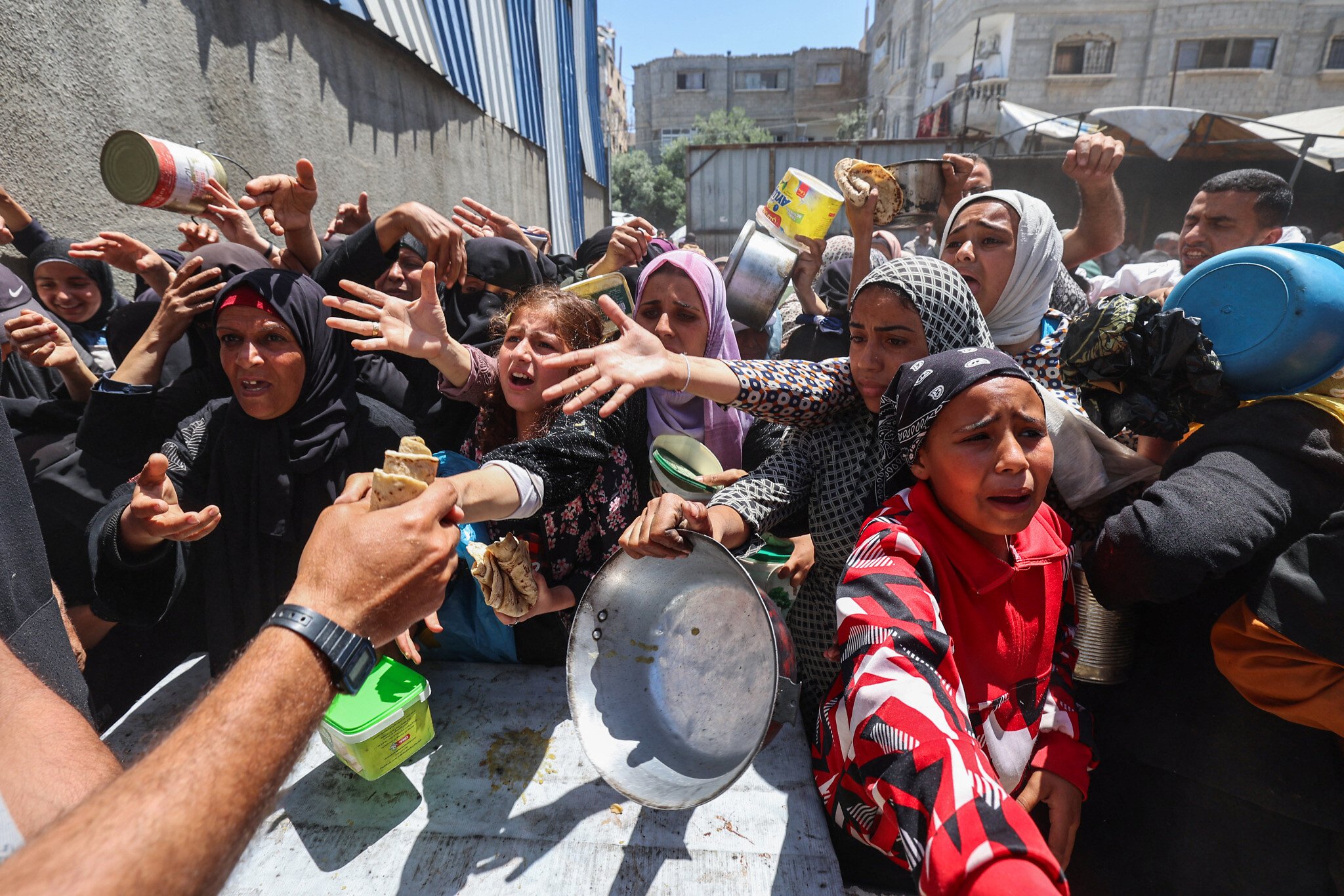



At least 73 Gazans were killed Sunday in the Gaza Strip, the vast majority of them while seeking out aid at distribution sites near Gaza City, the territory’s Hamas-run health ministry said, with Israel disputing the death toll.
The largest toll was in northern Gaza, where at least 67 Palestinians were allegedly shot dead trying to reach aid that had entered through the Zikim Crossing with Israel.
The remaining six were killed in the southern part of the Strip, according to the ministry.
It was not immediately clear whether the victims were killed by the Israel Defense Forces or armed gangs or both. But some witnesses said that Israeli troops shot at the crowd.
Responding to the reports, the IDF said it had fired “warning shots to remove an immediate threat posed to the troops” in northern Gaza, but denied the steep death toll, insisting that the “reported number of casualties does not align with the existing information.”
The army has been implicated in near-daily shooting incidents near humanitarian aid sites in recent months.
More than 150 people were wounded Sunday, with some of them in critical condition, hospitals said, according to the Associated Press.
The killings in northern Gaza did not take place near aid distribution points associated with the US- and Israel-backed Gaza Humanitarian Foundation (GHF), which hands out food packages to Palestinians.

Following the reports, the GHF stressed that the shooting took place near a UN aid convoy, rather than near any of their distribution hubs, which have seen hundreds of people killed in recent months by Israeli fire while trying to access the sites, according to witnesses and health workers.
“Like most violent incidents, this incident is not linked to GHF, despite what was falsely implied by Al Jazeera,” the group insisted, adding that it hoped “reporters will cover these incidents with the same scrutiny GHF receives.”
On top of the regular shooting incidents Gazan aid-seekers have faced over the past few months, food has been spread thin in the war-torn enclave.
The World Central Kitchen organization, which works to provide fresh meals in disaster-stricken areas, said Sunday that it had depleted all supplies in its Gaza warehouses and that its aid trucks were stuck at the border.
As a result, the organization was forced to halt operations in kitchens that were serving hot meals. However, its teams in Gaza are continuing to bake bread and distribute water to residents, the group said. It added that on Saturday, it served 80,000 meals to residents of Gaza.
The entry of humanitarian aid into Gaza has been a point of conflict between Israel and aid organizations since the start of the war. Aid groups have accused Israel of obstructing deliveries, while Israel repeatedly claims the organizations fail to meet necessary conditions for safe food distribution, such as compliance with specific aid routes in the Strip.
Last week, the GHF announced that UN-affiliated organizations had not delivered food to Gaza for over a week, and that the GHF was currently the only group bringing humanitarian aid into the territory. This appeared to no longer hold true, however, given the Sunday reports of the shooting near a UN aid convoy which had entered Gaza via the Zikim Crossing.

Ambulances in front of three major hospitals in Gaza sounded their alarms simultaneously Sunday, in an urgent appeal to shed light on the hunger crisis in the territory. The Hamas-run health ministry posted pictures on social media of doctors holding paper signs about malnourished children and lack of medication.
Zaher al-Wahidi, one of the spokespeople at the ministry, said that at least nine children under 5 years old had died of malnutrition as of Sunday, since Israel’s complete blockade on aid entry in March, which was lifted in May after over two months.

In northern Gaza, Shifa Hospital director Mohammed Abu Salmiya said that the hospital recorded 79 people who died of malnutrition in the past month.
Israeli strikes continued to pound the Gaza Strip overnight Saturday into Sunday. Large explosions in northern Gaza were visible from Israel as plumes of fire shot into the sky.
Meanwhile, the Mujahideen Brigades announced Sunday that two of its senior members were killed the day prior in an Israeli airstrike in southern Gaza’s Khan Younis.
The Mujahideen Brigades is a relatively small Hamas-allied terror group in the Strip. According to the IDF, the group was responsible for the abduction and murder of Shiri Bibas and her two young sons, Ariel and Kfir; Gadi Haggai and Judih Weinstein; and Thai hostage Nattapong Pinta.
The terror group said the strike in Khan Younis killed Azmi Mohammed Qdeih, a commander responsible for the Gaza City area, and Raed al-Saqa, a commander responsible for the southern part of the Strip. It also killed several members of their families, the terror group added.
The IDF did not immediately comment on the strike.
The leader of the Mujahideen Brigades was killed in an IDF strike in June, along with another senior member of the terror group. Another Mujahideen Brigades operative involved in burying the bodies of slain hostages was killed in a separate strike, also in June.
The IDF reissued evacuation orders for all of northern Gaza and parts of Gaza City, as the military continued its offensive against Hamas in the area.
In a statement, Col. Avichay Adraee, the IDF’s Arabic-language spokesperson, warned “all those who have returned or intend to return to the areas of Beit Lahia, Jabalia, Beit Hanoun, Shejiya, Daraj, the Old City, Tuffah, [and] Zeitoun” that those areas are “dangerous combat zones.”
“The Israel Defense Forces are operating in these areas with very great force,” he said.
Three IDF divisions are operating in the northern Gaza Strip area, mostly in Beit Hanoun, Jabalia, and Gaza City’s eastern neighborhoods.
Earlier on Sunday, the IDF announced it was set to begin ground operations in Deir al-Balah for the first time since the start of the war, issuing an evacuation order for Palestinians in the southwest of the city in the central Gaza Strip.
Deir al-Balah is one of the few places in the Strip where the military has not yet operated with ground troops because it believed Hamas to be holding hostages there, though it has conducted airstrikes in the city. Hamas has vowed to execute captives if the IDF approaches.
